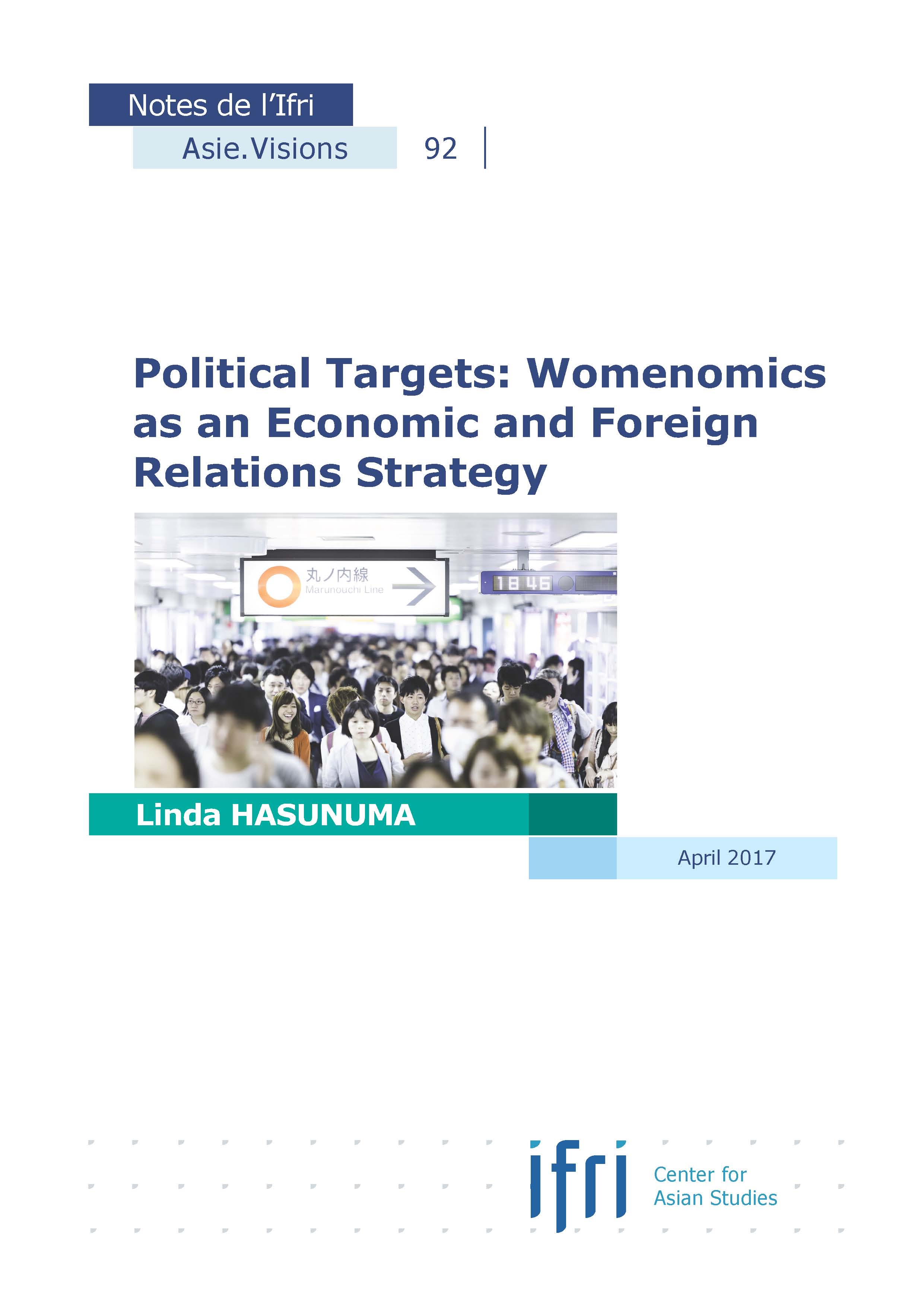Political Targets: Womenomics as an Economic and Foreign Relations Strategy

This paper provides an overview of the womenomics strategy launched by Japan Prime Minister Shinzo Abe, and shows how a plan designed to mitigate Japan’s demographic crises and labor shortages also evolved into a foreign relations strategy to help manage Japan’s reputation abroad on gender equality.

Four years have passed since Prime Minister Abe launched his Three Arrows of reform – “Abenomics” – to revitalize Japan’s economy. The first arrow targeted monetary policy; the second fiscal policy, and the third structural reform – including a measure aimed at reducing barriers to women’s participation in the labor force; this part quickly became known in the media as “womenomics”.
Demographic and economic pressures make it imperative for the Japanese government to employ more women as its population ages and shrinks, but Japan has been under great international pressure over its disappointing record on women’s equality as well. What began as an economic strategy about women became also a foreign relations strategy that could help the Japanese government reframe the narrative and its reputation as a country that fails its women; it has also faced increasing criticism and even condemnation from human and women’s rights activists and organizations for its position on the Comfort Women issue. Womenomics is also a public relations strategy for the government to signal to other countries, financial and international institutions, investors and rights organizations, that it is taking action on two important fronts: economic reforms and gender equality. The inclusion of women can provide economic and political benefits to Japan.
Although the government has missed many of its intended targets, womenomics has made an impact, and helped to center Japanese women on the national and international stage. It may not have produced substantive changes over four years, but it will undoubtedly be an important part of Shinzo Abe’s legacy as prime minister. To stay on course, Japan must make womenomics a long-term strategy – one that does not lose momentum when Abe leaves office.
Download the full analysis
This page contains only a summary of our work. If you would like to have access to all the information from our research on the subject, you can download the full version in PDF format.
Political Targets: Womenomics as an Economic and Foreign Relations Strategy
Related centers and programs
Discover our other research centers and programsFind out more
Discover all our analyses
Opening up the G7 to South Korea to Address Contemporary Global Challenges
The G7’s global influence has diminished as powers like China reshape international governance through initiatives such as BRICS and the Shanghai Cooperation Organisation (SCO). With the G7 now representing just 10 per cent of the world’s population and 28 per cent of global GDP, its relevance is increasingly questioned.
Expanding SPDMM as a pivotal institution in the Pacific – A French perspective
The South Pacific Defence Ministers’ Meeting (SPDMM) is the only forum that brings together defense ministers from the wider South Pacific — including Chile, which is hosting it for the first time. This heterogeneous group of countries with varying resources, capacities, and interests — Australia, Chile, Fiji, France, New Zealand, Papua New Guinea (PNG), and Tonga — are united by their shared determination to strengthen cooperation on maritime security and humanitarian assistance and disaster relief (HADR) activities.
EU’s Derisking From China: A Daunting Task
With economic security as a major concern, the EU has recently turned to “derisking” from China. The EU strategy entails reducing critical dependencies and vulnerabilities, including in EU supply chains, and diversifying where necessary, while recognizing the importance and need to maintain open channels of communication.
Sri Lanka’s NPP Government. From System Change to Structural Compliance
In September 2024, a relative outsider to Sri Lanka’s two-party-dominated political system, Anura Kumara Dissanayake, won the presidential elections. The anti-establishment, populist movement he represented, the National People’s Power (NPP), went on to receive an overwhelming mandate in the November 2024 general elections, winning 159 seats in a 225-member parliament.









